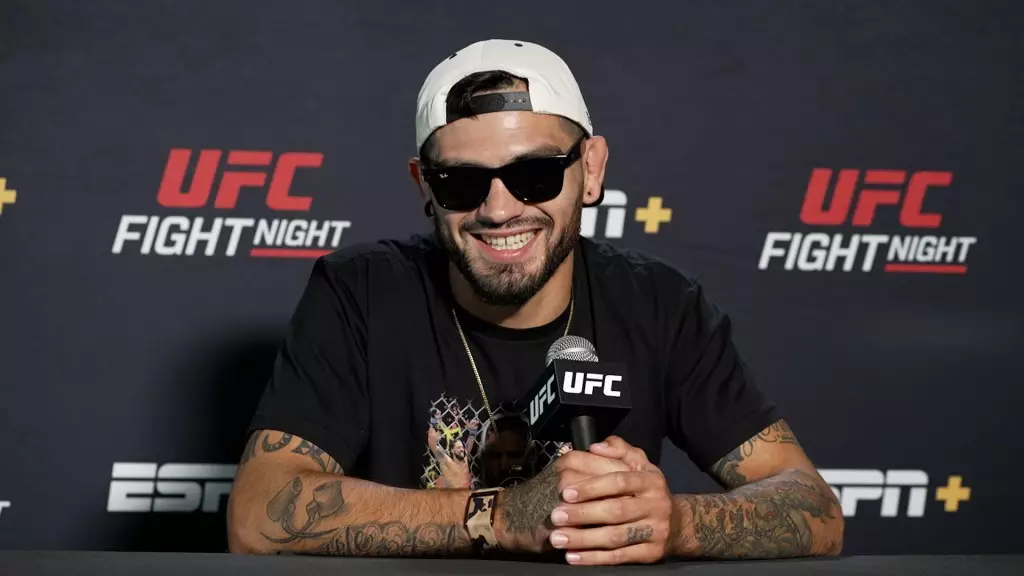As the competitive landscape of mixed martial arts (MMA) continues to evolve, fighters often find themselves grappling with the expectations placed upon them. Anthony Hernandez, currently ranked among the top middleweights in the world, embodies a refreshing perspective on the sport. While many fighters obsess over their opponent’s strengths and weaknesses, Hernandez takes a different route. He acknowledges the unpredictable nature of his upcoming fight against Michel Pereira, but chooses not to dwell on it. This approach reveals the psychological nuances often overlooked in MMA—a blend of confidence and focus that can be pivotal in high-stakes bouts.
Hernandez is a fighter who doesn’t engage with the exhausting cycle of social media. Unlike many contemporary athletes who curate their personas online, he maintains a low-profile presence. By detaching from the fervor of public discourse surrounding the fight and refusing to obsess over betting odds and gossip, he cultivates a mental space that prioritizes his performance. “I really don’t give a f*ck what he has to offer because I’m focused on what I’m going to do great,” Hernandez states, highlighting a key to his success: maintaining control over his mindset without being swayed by external narratives.
Hernandez’s insights into Pereira’s fighting style reveal a deeper understanding of the physical demands of MMA. He notes that Pereira tends to struggle in the later rounds, describing his opponent as “wild” and showcasing a belief that the unpredictability of Pereira’s style might ultimately work against him. While Hernandez is aware that Pereira’s unorthodox techniques could pose a danger early in the fight, he remains confident that his own endurance and tactical strategy will lead to a favorable outcome. “If everything goes right and my hands are up, I think I finish him,” he articulates, further emphasizing the importance of cardio and pacing in a successful fight.
This analysis also serves as a subtle critique of many fighters who fall into predictable patterns of speculation and fear. Hernandez’s perspective promotes a healthier approach to preparation: one that relies on self-knowledge rather than fear of the opponent. By evaluating Pereira’s past performances and acknowledging his tendency to tire, Hernandez strategically positions himself for success.
In the fiery realm of MMA, mental preparation can be as crucial as physical conditioning. Hernandez’s approach exemplifies the need for psychological resilience—an asset that can turn the tide during a fight. While Pereira may embody a frenetic style that can captivate fans, Hernandez’s calm and collected mindset speaks to a fighter who understands the importance of embracing one’s own capabilities over becoming entrapped in the chaos of unpredictability.
As fight night approaches, Hernandez’s focus underscores a fundamental principle in sports: to succeed, a fighter must be centered on their own execution rather than being overly consumed with their opponent’s unpredictable moves. This methodology could very well serve as a model for other athletes—one that champions self-awareness, dedication, and mental clarity over the noise that often cloaks the sport. In a world where unpredictability reigns, Hernandez’s readiness to maintain his focus might just be the edge he needs to secure victory.

